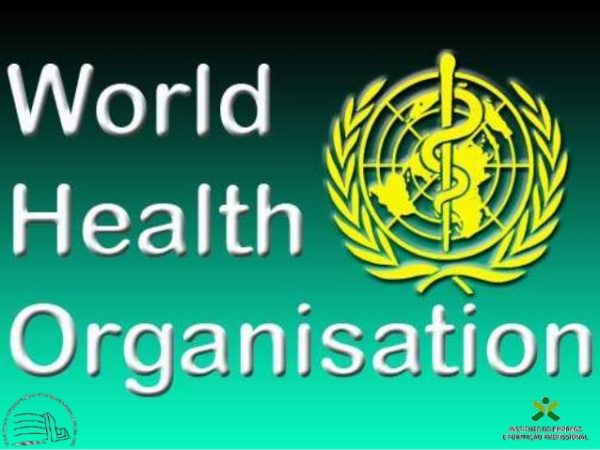

The World Health Organization has concluded that cannabidiol is safe. However, experts say it may take more to change marijuana policy in the United States.
Thee conversation about medical marijuana could be changing soon.
The World Health Organization (WHO) has published a new assessment of cannabidiol, often simply called CBD and one of the main chemical components in marijuana.
The report concludes that CBD “exhibits no effects indicative of any abuse or dependence potential.”
Furthermore, it states, “CBD has been demonstrated as an effective treatment of epilepsy in several clinical trials… [and] may be a useful treatment for a number of other medical conditions.”
The WHO further clarified that their assessment shouldn’t be read as an endorsement of CBD either.
They explained this position more thoroughly to Newsweek, saying the assessment, “doesn’t say that WHO recommends the use of cannabidiol,” but rather that the chemical doesn’t warrant a place in international drug scheduling based on current evidence.
A further review of CBD and other cannabinoids will be held in May by WHO officials.
The changing debate
Their assessment is unlikely to have an effect on U.S. policy related to CBD and medical marijuana.
CBD is regulated on a state-by-state basis, and its legality is actually quite murky.
Nonetheless, experts say the WHO report will almost certainly play a role in the changing narrative around medical marijuana and CBD in particular.
“When faced with the facts, when asked to objectively review the available science with regard to CBD, there really was no other available outcome for the agency to make. Their finding simply reiterates what the available evidence consistently says,” Paul Armentano, deputy director of the National Organization for the Reform of Marijuana Laws (NORML), told Healthline.
Both Armentano and WHO officials point to numerous clinical studies on CBD that substantiate its therapeutic potential and its safety in humans.
One product in particular, an epilepsy treatment called Epidiolex, is already in phase III trials.
Beyond epilepsy, a review of other potential therapeutic applications for CBD from this year includes Crohn’s disease, nausea, cancer, multiple sclerosis, and Alzheimer’s disease.
However, CBD’s effects in these areas aren’t nearly as well-known as they are for epilepsy.
“I think the WHO report is telling in that the World Health Organization is certainly not a group that one would historically define as being particularly sympathetic to cannabis or being particularly progressive when it comes to cannabis policy,” said Armentano.
Policy in the United States
In the United States, CBD is still a schedule I substance, the same as marijuana, according to the Drug Enforcement Agency (DEA).
It remains illegal at the federal level, but in states with medical or recreational marijuana laws, CBD would fall under that umbrella.
Even in some states without medical marijuana programs, CBD is often sold as a gray-market item.
As recently as this month, Indiana lawmakers reneged on a bill allowing people with epileptic to use CBD through a state registry.
CBD has also touched a particular nerve between parents and lawmakers as it’s frequently used to treat epilepsy and seizures in children.
Armentano notes that there is a growing body of scientific studies and patient testimonials, especially from parents, “who are gaining therapeutic benefit from this substance.”
He argues that the WHO’s newly adopted position on CBD only serves to highlight the opposition of the United States’ current stance.
The WHO report notes that “several countries have modified their national controls to accommodate CBD as a medicinal product.”
The United States isn’t among them.
“There is no way to read the WHO findings with regard to abuse potential of CBD and find any way to take their statement and make it consistent with this contention of [the] DEA [that it] has a high potential for abuse — arguably the highest potential for abuse of any controlled substance,” said Armentano.
New legislation possible
The WHO report may prove to be timely, though.
On Monday, Sen. Ron Wyden (D-Oregon) announced he would be the first senator to join Senator Cory Booker (D-New Jersey) in co-sponsoring the Marijuana Justice Act, a bill that is designed to end marijuana prohibition on the federal level.
The bill would remove marijuana from the DEA’s list of controlled substances.
“Really the only thing that impacts marijuana policy in the United States is either Congress or acts by the DEA. This certainly is not a policy that is swayed by actions that are taken by countries overseas,” said Armentano.
more recommended stories
 Fentanyl Seizures at Border Continue to Spike, Making San Diego a National Epicenter for Fentanyl Trafficking
Fentanyl Seizures at Border Continue to Spike, Making San Diego a National Epicenter for Fentanyl TraffickingFentanyl Seizures at Border Continue to.
 Utah Man Sentenced for Hate Crime Attack of Three Men
Utah Man Sentenced for Hate Crime Attack of Three MenTuesday, August 8, 2023 A.
 Green Energy Company Biden Hosted At White House Files For Bankruptcy
Green Energy Company Biden Hosted At White House Files For BankruptcyAug 7 (Reuters) – Electric-vehicle parts.
 Former ABC News Reporter Who “Debunked” Pizzagate Pleads Guilty of Possessing Child pδrn
Former ABC News Reporter Who “Debunked” Pizzagate Pleads Guilty of Possessing Child pδrnFriday, July 21, 2023 A former.
 Six Harvard Medical School and an Arkansas mortuary Charged With Trafficking In Stolen Human Remains
Six Harvard Medical School and an Arkansas mortuary Charged With Trafficking In Stolen Human RemainsSCRANTON – The United States.
 Over 300 People Facing Federal Charges For Crimes Committed During Nationwide Demonstrations
Over 300 People Facing Federal Charges For Crimes Committed During Nationwide DemonstrationsThe Department of Justice announced that.
